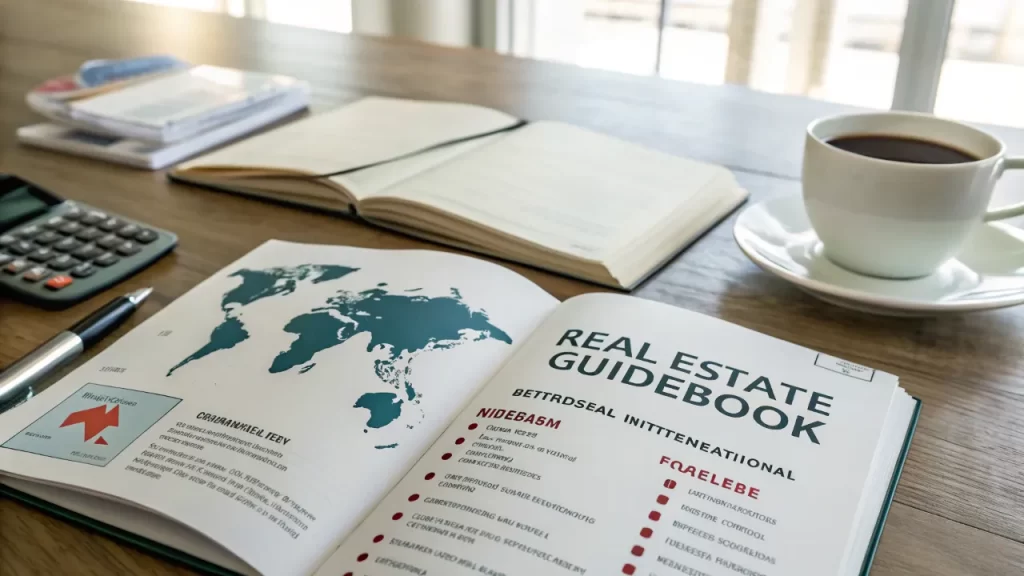Table of Contents
What Every Agent Should Know to Help Renters, Buyers, and Sellers
Three questions on real estate: You frequently work with renters, buyers, and sellers as a real estate agent. Each group has needs, preferences, and goals for securing a home or investment property.
It’s important to be prepared for their questions and guide them through the complexities of the real estate market. Here, we’ve compiled some of the most common questions from clients in each category and how best to address them.
Understanding Renters, Buyers, and Sellers: Key Differences
Before you answer questions, it’s important to recognize the different motivations of renters, buyers, and sellers. Renters usually look for flexibility and low costs. Buyers focus on long-term investment and the perks of owning a home. Sellers focus mainly on pricing and marketing. They want to sell their homes for the best price.
For example, renters may ask about lease terms, renewal options, and utility costs. Buyers often inquire about financing options, home prices, and negotiation strategies. Sellers, meanwhile, are more likely to seek advice on staging, pricing, and closing deals. Understanding these differences helps you give better advice. This makes transactions easier for everyone.
Common Questions from Renters: What to Expect

Here’s a list of the most common questions renters might ask as they search for their next home.
Are Utilities Included in the Rent?
Utilities like water, heating, and hot water are included in many rental properties. However, this can vary depending on the Building. Some units may have a flat fee for water, while others charge renters separately for electricity and gas. Verify this information with the property manager or landlord, and let your clients know you can help with these inquiries.
Can I Make Repairs to the Unit?
Lease agreements usually outline which repairs the landlord must handle and which the tenant’s tenant’s renter wants to make. Therefore, tenants should check with the landlord first. Sometimes, the landlord may approve repairs or even help with the costs.
Also Read: What Is the Booming Real Estate Side of Kansas City for 2024
Is a Guarantor or Co-Signer Required?
Many landlords require a co-signer or guarantor, particularly if the renter has a low income, limited rental history, or poor credit. This helps protect the landlord if the renter cannot pay the Rent.
What Additional Fees Will I Have to Pay?
Renters should inquire about additional fees, such as security deposits, pet, maintenance, and parking fees, before signing the lease. These fees can vary by property, so it’s essential to ensure that all costs are transparent upfront.
How Long Has This Apartment Been on the Market?
A common question cautious renters may ask to gauge if a unit is overpriced or has potential issues. If this information isn’t available, be prepared to investigate further or contact the landlord for specifics.
Does the Landlord Live in Building?
Renters may want to know if the landlord or property manager lives on-site. This can affect response times for repairs and emergencies. Knowing that someone is always available for possible issues gives renters peace of mind.
Is the Building Rent-Controlled or Stabilized?
Knowing if a building is rent-controlled or stabilized can provide peace of mind for renters concerned about long-term affordability. Rent increases in such buildings are typically regulated, helping prevent sharp hikes.
QuestionRentllers Should Anticipate: How to Guide Your Clients
When helping sellers, these are the questions you should be prepared to answer.
How Should I Prepare My Home for Sale?
Staging is key to making a home market-ready. Sellers should declutter, deep clean, and consider professional staging if needed. A well-presented home can often fetch a higher sale price.
Should I Order a Home Inspection?
A pre-listing inspection can uncover issues that need to be addressed before listing. While this can be a cost upfront, it helps prevent surprises later. Be clear with sellers that any issues found must be disclosed to potential buyers.
How Long Will It Take to Sell My Home?

On average, homes sell within 69 days, but this can vary greatly depending on location, market conditions, and the home’s condition. Be prepared to adjust expectations based on local trends.
When Is the Best Time to Sell My Home?
In most parts of the U.S., spring, especially May, is the best time to sell. Families prefer to move in the summer to avoid disrupting the school year, so the market tends to pick up in spring.
What Is the Selling Price of My Home?
Pricing is crucial. A competitive market analysis (CMA) can help determine a realistic price based on the home’s location, size, condition, and home. Online tools like home value estimators can provide a ballpark figure, but a professional CMA is more accurate.
Why Is My Home’s Assessed Value Different from Its Mar Home’s?
The municipality sets the assessed value for tax purposes, while the market value is the amount a buyer would pay in the current market. Market conditions, such as a buyer’s or seller’s market, can influence the buyer’s seller’s assessed value.
Also Read: Navigating Foreign Real Estate Regulations: A Complete Guide for Investors
Are Real Estate Commissions Negotiable?
Real estate commissions typically range between 5% and 6% of the sale price, but sellers can negotiate this rate with their agent. A lower commission might result in fewer services, so be sure to discuss what is included.
Buyer’s Questions: How to Assist First-Time Buyer’s and Repeat Buyers
Buyers, especially first-timers, often have many questions about the home-buying process. Here are some of the most common queries.
What’s the Average Credit Score Needed to What’s Me
Most mortgage programs require a minimum FICO score of 620. Buyers with higher credit scores may get better interest rates or lower down payment options. Be sure to explain the impact of their credit score on the loan terms.
What Is a Mortgage and How Does It Work?
A mortgage is a loan used to purchase a property, with the home as collateral. Buyers will need to provide a down payment, which is typically 3–20% of the home price, and repay the loan with interest over 15–30 years.
How Long Has This Home Been on the Market?
Like renters, buyers often want to know how long a home has been on the market. A longer time might suggest that the property is overpriced or that there’s a problem with it. This information helps buyers decide whether to negotiate a better deal.
Should I Sell My Current Home Before Buying a New One?

This depends on the buyer’s finances. They might buy before sellbuyer’sthey can afford two mortgages or are comfortable with temporary housing. Otherwise, selling first may be more practical, especially in a competitive market.
What Is Earnest Money?
Earnest money is a deposit that shows the buyer is serious about purchasing the property. Typically, 1-2% of the home’s price is held in escrow and applied to hometown payment or closing costs if the sale goes through.
What Happens if I Decide to Back Out of Buying a House?
If a buyer backs out during the contingency period (like failing the home inspection or financing), they can often get their earnest money back. After that period, the seller may keep the earnest money or pursue legal action if the buyer breaches the contract.
How Much Will My Down Payment Be?
While the conventional down payment is 20%, the national average is closer to 14.4%. Many loan programs, including FHA and VA loans, allow for much lower down payments, sometimes as little as 3.5% or even 0%.
How Much Will I Have to Pay in Closing Costs?
Closing costs generally range from 2% to 5% of the home’s price. These costs cover lender fees, home insurance taxes, and other closing expenses. Buyers should budget for these additional costs.
How Rent Spree Can Help Streamline Your Real Estate Processes
The real estate market and your clients’ needs are always evolving. Whether you’re helping renters find the perfect home, your couriers explore financing options, or guiding sellers through the sales process, having the right tools and resources can make all the difference.
Rent Spree offers solutions to simplify your workflow, including tenant screenings, rental applications, and more. This lets you focus on what matters most: closing deals and building client relationships.
FAQs:
What is the difference between renting, buying, and selling a home?
Renters seek affordable living; buyers focus on financing and property choice; sellers aim to maximize sale price and close quickly.
What should renters ask before signing a lease?
Renters should ask about utilities, repair responsibilities, fees, and lease terms to avoid unexpected costs and ensure a good rental experience.
How can sellers prepare their home for sale?
Sellers should stage their home, complete repairs, and price it competitively based on market analysis to attract buyers and maximize value.

